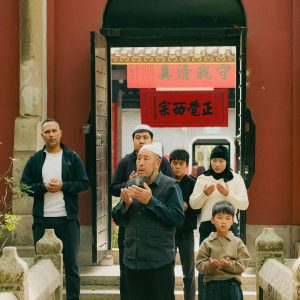Trump convicted, avoids punishment in hush money case
The case marked a historic moment as Trump became the first former president and future president-elect to be tried and convicted of criminal charges
Muslim Network TV
-NEW YORK (MNTV) – In an extraordinary legal and political development, President-elect Donald Trump was convicted on Friday in the hush money case but avoided any jail time, fines, or probation.
Manhattan Judge Juan Merchan handed Trump an “unconditional discharge,” ensuring he remains a felon but without facing the penalties typically associated with such convictions.
The case marked a historic moment as Trump became the first former president and president-elect to be tried and convicted of criminal charges. However, the lenient sentence allows him to assume the presidency without any encumbrance.
The charges stemmed from accusations that Trump falsified business records to conceal a $130,000 payment to adult film actor Stormy Daniels during the 2016 presidential campaign. Prosecutors argued the payment aimed to silence Daniels’ claims of an alleged affair, which Trump has consistently denied, asserting the charges were politically motivated.
The trial was unique, featuring sordid details of alleged extramarital affairs and campaign finance violations, but it failed to deter Trump’s political ascent. Voters seemingly dismissed the implications of the trial, electing him for another term in the White House despite his conviction on 34 felony counts.
Appearing virtually from his residence in Palm Beach, Florida, Trump maintained his innocence, describing the case as a “political witch hunt” designed to damage his reputation. Dressed in a dark suit with an American flag in the background, he reiterated, “I never falsified business records. It’s a fake, made-up charge.”
The president-elect also lambasted the trial as a “weaponization of government” and an “embarrassment to New York.” His legal team echoed these sentiments, emphasizing that voters had ultimately decided the case’s significance through their ballots.
In sentencing Trump, Judge Merchan acknowledged the constitutional complexities involved, particularly as Trump is set to assume office in ten days.
While the judge could have imposed a sentence of up to four years in prison, he opted for an unconditional discharge, stating that the legal protections Trump will enjoy as president override other considerations.
Merchan clarified that while constitutional immunity protects Trump from certain legal repercussions, it does not negate the jury’s verdict. He added that his decision sought to balance the public’s expectation of justice due to a jury’s findings.
Prosecutors expressed disappointment with Trump’s consistent attacks on the legal process. Assistant District Attorney Joshua Steinglass criticized Trump for undermining public confidence in the justice system, stating that his rhetoric “has caused enduring damage to public perception” and placed court officers at risk.
Steinglass highlighted Trump’s lack of remorse, accusing him of breeding disdain for the jury verdict and fostering a narrative of retaliation against those involved in the case. Despite this, prosecutors supported the judge’s decision for a no-penalty sentence.
The hush money case adds a complex layer to Trump’s political narrative as he prepares to return to the White House. Despite the conviction, Trump’s supporters rallied around him, denouncing the trial as a partisan conspiracy. Outside the courtroom, opposing groups clashed, one displaying banners declaring Trump’s guilt, while others condemned the trial as a political witch hunt.
The case is unprecedented, not just for its implications but also as the only one among four criminal indictments against Trump to reach trial. Other investigations, including those concerning classified documents and alleged election interference in Georgia, have either stalled or ended.
As Trump prepares to assume office, his conviction cements his status as the first felon to lead the nation. The case’s resolution underscores the unprecedented legal and political dynamics surrounding his presidency and raises questions about the broader implications for the justice system and American democracy.







